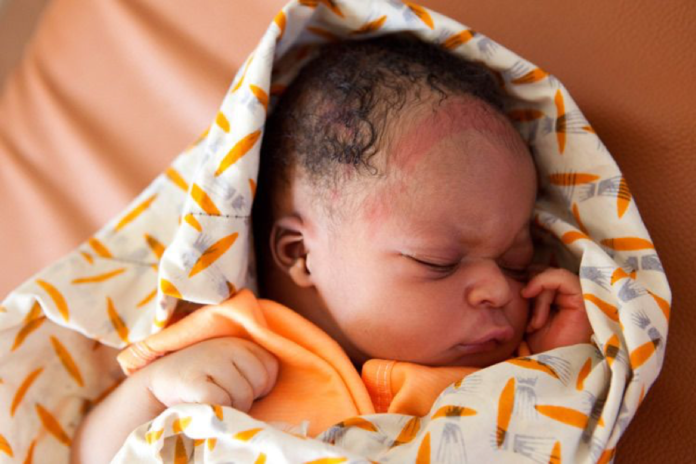By: Christian Alpha Conte
Madam Fatu Sesay paced the corridor of the Princess Christian Maternity Hospital (PCMH) in the east end of Sierra Leone’s capital city, Freetown, crying and flapping her hands on her head. She just received news that her 15-year-old pregnant daughter, Kadie has suffered a ruptured uterus and must be operated on in order for the baby to be delivered safely.
According to Senior Midwifery Sister, Iye V. Conteh, the Class VI pupil has been in labour for three days since she was referred to the PCMH by the St. Anthony Hospital at Syke Street, Freetown, where she had been admitted. Apparently Kadie’s mother didn’t have the money to pay for an operation.
Kadie’s pregnancy is as a result of sexual penetration by her uncle who was tasked with the responsibility to take care of her when her sick mother was in neighbouring Guinea seeking a cure for some long term illness.
Coincidentally President Julius Maada Bio was at that very moment officially declaring a National Emergency on Rape and Sexual Violence, as a major step towards addressing rape and all forms of sexual violence in Sierra Leone.
According to President Bio each month hundreds of cases of rape and sexual assaults were being reported against women, girls and babies with some of the fatalities being as young as three months old. 70% of survivors of this traumatic experience being under the age of 15.
Of nearly 3,000 reported sexual assault cases, 602 of the survivors became pregnant; 7 of them contracted HIV/AIDS; 2,404 had STDs; thousands more were scarred and traumatised by the ordeal. Only 39 of these 3,000 reported cases were successfully prosecuted whilst 2,961 of the survivors of sexual violence were denied justice.”
According to Sierra Leone’s Health Information Bulletin of August 2020 (Volume 7, Issue 2) Maternal mortality in Sierra Leone had reached 1,070 deaths between January to June of 2020. According to a report by the Ministry of Health and Sanitation in Sierra Leone, from January to March of 2020, there was a total of 581 maternal deaths. And from April to June of 2020, the total was 489 maternal deaths.
The small West African country, which ranks as one of the world’s least developed nations ranking 182 of 189 according to the UN development index, lacks accessible and affordable health care units especially in remote areas where women and girls are at greatest risk. In areas where health care units are available, reports say pregnant women are too poor to meet the charges. In effect they turn to Tribal Birth Attendants (TBAs) for health care and delivery.
Dolcie Jarrett is a nursing sister at the PCMH’s Ante Natal Division, she said most pregnant women fear to give birth in a recognised hospital but could not say whether it was because the women could not afford the bills or they were scared of an eventual Caesarean Section Operation.
“We encourage them to do regular check-up and to ensure they give birth in a recognized hospital, but most of them prefer to deliver in their homes or homes of neighborhood nurses,” said Sister Jarrett.
“They only come to the hospital in a moribund state. In fact, most of them come here damaged; they come here already dead, literally speaking. And so at the end we get the bad name,” she continued.
Over the years the PCMH, Sierra Leone’s main referral reproductive hospital, has become notorious for the consistent incidences of maternal and infant deaths occurring in its wards.
Amidst the stack reality, Dr Fatu Forna, Technical Advisor at the WHO Country Office in Sierra Leone in February of 2020 said because of the strong leadership in the Ministry of Health and Sanitation (MOHS) and collaboration of partners including communities, clinics, hospitals, district health management teams and health development partners she has seen promising progress in the reduction of maternal mortality. Noting that nearly all maternal deaths are now investigated and reviewed, and a robust response is mounted to address issues identified.
Popular Nigerian actress, Omotola Jalade-Ekeinde, was part of the Amnesty delegation that travelled to Sierra Leone several years ago as the organisation took on the fight against infant and maternal mortality. Along with five selected local artists, they recorded a song to raise awareness on maternal mortality which they performed live on a caravan stage that toured the country.
“It’s a gross human rights violation for a woman to die giving life,” said Omotola, who has mothered four children in the space of about six years.
But there was at least a happy ending for Kadie. Doctors operated on her and she’s now living with her daughter (who’s already been named Mariatu Sesay) at their Jamboria Street, Off Kroo Town Road, residence in central Freetown.









